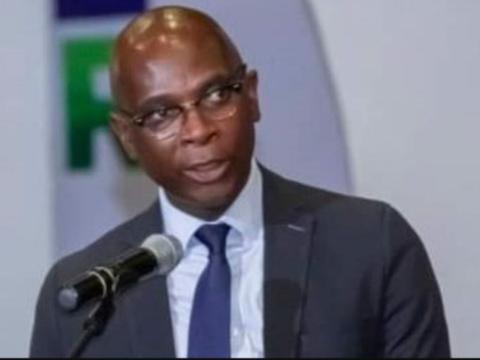By Politico Staff Writer
The Ministry of Basic and Senior Secondary Education (MBSSE) with support from the United Nations Population Fund (UNFPA) and Irish Aid has re-integrated 2,015 (two thousand and fifteen) out-of-school girls into formal education from four districts in the country.
The girls were selected using the Radical Inclusion criteria from 19 communities across Moyamba, Kambia, Koinadugu and Pujehun.
The girls came from eleven communities across the four districts and represented some of the most vulnerable, with 15 girls pregnant at the time of identification, 127 of them adolescent mothers, and 26 having a form of functional difficulties (disability).
The Basic Education Minister, Conrad Sackey encouraged the girls to make use of the opportunity, stay in school and break the ceiling by competing with their male counterparts, noting that as women, they should take advantage of the Gender Equality and Women's Empowerment (GEWE) Act.
He commended his staff and partners for their role in ensuring that the girls return to school. He said President Julius Maada Bio remains committed to Free Quality School Education (FQSE) and access to education for all is key in this drive.
In order to ease the financial burden of returning to school, and in line with the National Policy on Radical Inclusion in School, UNFPA supported the MBSSE to procure, assemble, and distribute back-to-school kits to each of the girls chosen for reintegration.
The re-integration package includes; two sets of uniforms, one pair of school shoes, one school bag, three pens, two exercise books, and one copy of the National Secretariat for the Reduction of Teenage Pregnancy and Child Marriage’s Adolescent Information Pack.
The UNFPA Country Representative Nadia Rasheed noted that the courage to return to school is a very bold step that the girls have taken and she encouraged them to stay in school. She thanked the teachers and the Ministry for the role they have played in ensuring that these girls return to school.
“For UNFPA, we want a world where every pregnancy is wanted, every child lives and every young person's potential is fulfilled,” she said.
The Ireland Ambassador to Sierra Leone, Aidan Fitzpatrick congratulated Sierra Leone for lifting the ban on pregnant girls, noting that Sierra Leone is attracting external support on education as a result of the government’s investment in education which is 22% budgetary allocation, “the highest in Africa.”
The Ambassador highlighted that in September 2022, UNFPA supported the MBSSE to reintegrate an additional 600 out-of-school girls into formal education. At that time of identification, 79 girls were pregnant, 322 were adolescent mothers, 104 were learners with disabilities (trouble hearing, 37; trouble seeing 32; trouble with mobility, 13 had trouble remembering or concentrating, and 22 with all 600 girls living in underserved communities.
It could be recalled that in July 2023 UNFPA supported the Directorate of Non-Formal Education to identify 2,015 girls to return to formal school.
Copyright © 2023 Politico (06/10/23)








